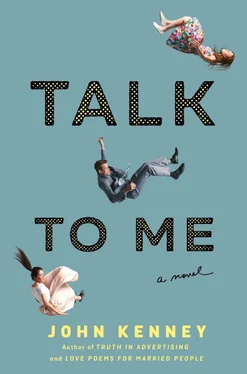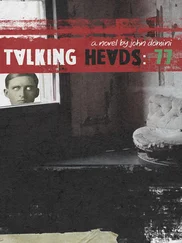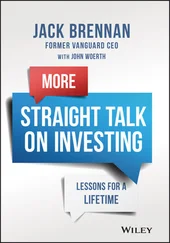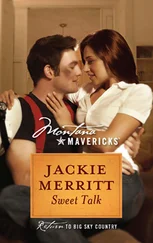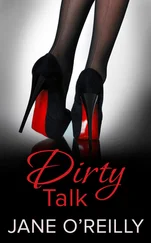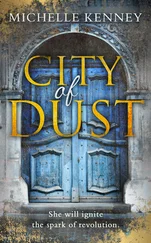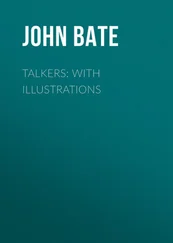She had not anticipated this but welcomed the question. Because what she had found was not some sordid thing. It was daylight and clean. It wasn’t an affair. She hated that word, the tawdry, lying, immoral nature of it. It was love. Fine, technically it was an affair. But for God’s sake, she was barely married, ignored for over a decade. The confidence-sapping nature of her union with Ted. She’d had her opportunities over the years. Men, friends of Ted, in fact, had hinted in no uncertain terms that they would love to meet for a drink or dinner, neither word said in a way that remotely meant drinking or dining. She never accepted. She wasn’t looking for this, hadn’t gone looking for it. He pursued her (fellow squash player). And do you know what it was? It was talking, sweat soaked, after a good game of squash, Claire’s favorite feeling, a post-exercise high, better than sex. They sipped from their water bottles and talked. He was funny. He had good legs. Well-muscled. She felt, after all these years, after all the emptiness, that she was owed him, that she had earned him.
And yet. It was quite another thing to say it out loud. To your husband. There are things that are said that cannot be taken back.
“Very much,” she said, quietly but firmly, surprising herself.
• • •
It was the very much that turned Ted’s head. This was not how he thought the afternoon would go. He stared at her, mouth open slightly. So lovely, Claire. How strange to see someone you know so well in a different light, to see her, perhaps, as this new man might see her.
“What do you love about him?” Ted asked.
Claire sighed, sipped from her tea, the water still annoyingly hot. She burned her tongue and blamed Ted. The hot water was Ted’s fault because she’d only made the tea in the first place because she knew this would be stressful.
“Do you really want to hear this?” Claire asked, going to the $15,000 Swedish-made refrigerator with the triple-filtered pH-balanced water for an ice cube. She put the ice cube to her tongue and stood at the sink, her back to Ted. She dabbed at her tongue, felt the cold, the drip down her wrist. She stared out the window at the rain.
She loved this house. She loved her daughter and her friends and the boxwoods and the garden she’d worked, her dog and the tennis and squash club and the smell of her new Audi Q7 and Netflix and the feel of her Hanro underwear and the taste of strong coffee in the morning.
“I do,” Ted said, Claire momentarily confused, as she’d forgotten Ted was in the room and also what he was saying I do to. Weren’t these the two words that had gotten them into this mess?
Claire dropped the ice cube into the sink, her tongue numb now.
What do I love about him? Claire thought to herself, a smile broadening across her face. She didn’t want to turn from the window. She wanted to stand here and feel good in this moment, with all that was in front of her, continue to pretend Ted wasn’t there.
It had been a difficult few years for Claire. Menopause had hit her like a brick wall. The night sweats, the mood changes, the turning inward. No support or empathy from Ted. She also felt the seismic shift of turning fifty three years earlier. It wasn’t possible. Mail, suddenly, from AARP. Someone was sending her mail telling her she was elderly, that she would die soon.
So Claire thought long and often about the future. About the house. About Franny and grandchildren. About when those grandchildren would visit and what room they would stay in and what kind of light would come into that room and what sheets and blankets would be needed and how a crib could be set up and how Christmas could be celebrated in the Bedford house and how, in summer, Franny and her children could use the Sag Harbor house, how Claire could be there all summer with the babies. The image spread through her body like warmth.
Ted thought almost not at all about the future. Indeed, at this moment, while Claire imagined it all, Ted was staring at Claire’s ass, admiring its impressively protruding roundness, under her black skirt. All that squash. Still remarkably fit at fifty-three.
Claire paused before she said it. Even after all they’d been through—the arguments, the distance and coldness, the therapy sessions, the walks with Nancy, who had urged her to leave years ago—she had no desire to hurt him.
“He’s happy, Ted,” Claire said, still looking out the window.
“Happy?” Ted asked, as if Claire had begun speaking in the clicking consonant sounds common to one of the Khoisan languages of central Africa. “Who over the age of forty is happy?”
Claire turned and looked at her husband, dumbfounded and saddened by the words, a kind of epigraph for Ted’s life, and saw him so clearly, at a remove, in a way she knew he would never see himself. She felt sorry for him.
“People, Ted,” Claire said softly.
Ted felt like a schoolboy caught in the wrong answer, an answer he was so sure of, and now the class was looking at him and laughing. Ha-ha! Ted’s a dumb fuck.
Claire watched Ted scratch at the collar line of his shirt, pull the collar away from his skin, his go-to nervous tic.
“What’s his name?”
“Ted. Really. Why does that matter?”
“I’m just curious.”
She knew what would happen, but she said it anyway, proudly.
“Dodge Ramsey.”
Ted snorted. “Seriously?”
“Christ, you’re a child.”
“What? That can’t be his name. That’s the show that runs after Remington Steele .”
Claire folded her arms over her chest and sighed.
“What do you do?” Ted asked.
“What?”
“What do you do? The two of you?”
Claire would not be drawn in, though she felt the tension, the adrenaline release, the beginnings of those awful feelings she’d felt for so many years with Ted.
“Ted.”
“What? I don’t think it’s an unreasonable question. Let me guess. He plays squash?”
“As a matter of fact, he does,” Claire said.
Claire’s obsession with squash had been a curious sore spot for Ted, a kind of jealousy. There was something about the sport, the WASPy, Ivy League clubbiness of it, the exclusivity of it, that bothered Ted in an admittedly petty way. Ted had tried it for a time and, though a natural athlete, simply couldn’t master it. Or even get reasonably good. It looked so simple. Hit the damned ball against the wall. But he flailed. And the more patient Claire was with him, the more annoyed he became. So he gave it up, lying and saying he didn’t really like it. And now the fact that Magnum P.I. or whatever his name was played—and probably played well—annoyed Ted. Images of a younger man, a far better-looking man, a more virile man, flitted across Ted’s mind. He saw his wife smiling at this new person, sweaty and curvaceous in her little squash skirt, flirting with him, holding his surely enormous penis. Dear God.
Ted nodded, a prosecutor who’d just gotten a witness to confess.
“Why is that surprising, Ted?”
“What else do you do, besides play squash? Do you talk about squash? Watch squash videos on YouTube? Is there a squash.com?”
He wasn’t sure why he was asking these questions. He felt out of control. He kept nodding.
Claire looked at him as if at a deranged man. She sighed deeply.
“We do the things people do, Ted. We go for a coffee. We go for a walk.”
“That sounds nice.” More nodding. Too much nodding. He felt it building. “What else? What other fun things? Movies? Do you go to the movies? Or plays? Or hotels? Do you screw at hotels?” He had not expected to say this but the line pleased him.
Claire stared at Ted for a time. “Don’t engage,” the therapist had said. “Count to ten, chuckle to yourself at the words you want to say. Say them to yourself: prick, fuck-nut.” The therapist laughed. Claire did, too. The therapist had left her husband as well.
Читать дальше
